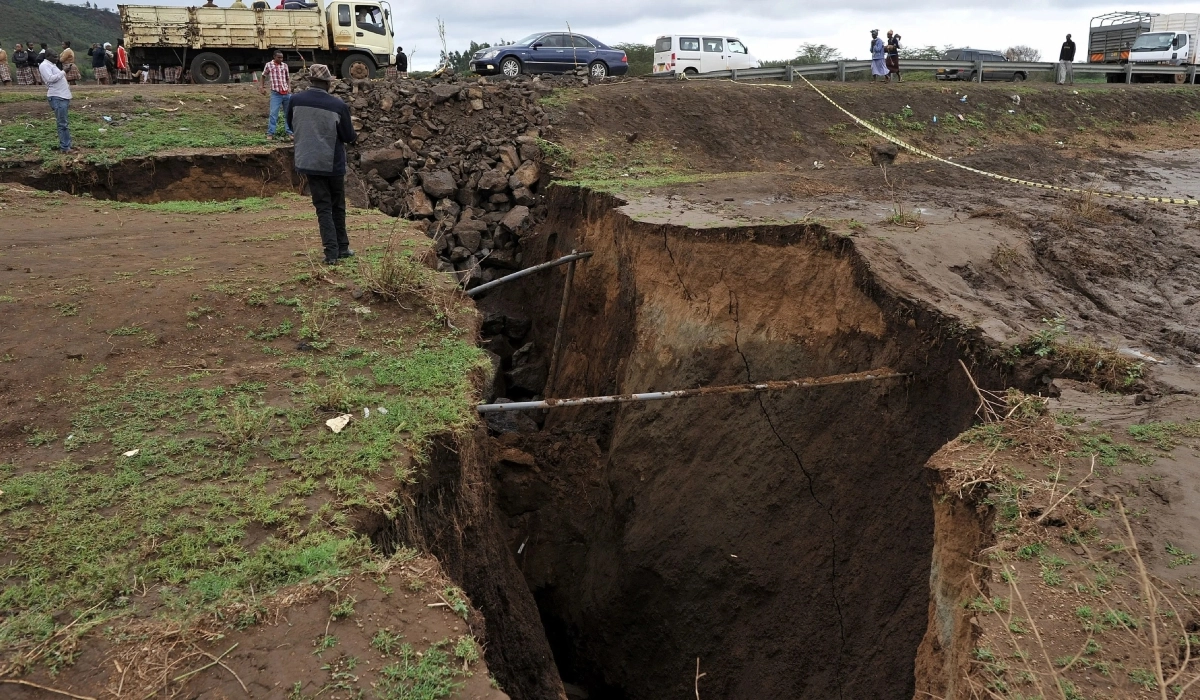Landlocked countries such as Rwanda, Uganda, Burundi, the DR Congo, Malawi, and Zambia could inadvertently find themselves with a coastline if Africa splits.
If the continental rift happens, Rwanda could build harbors that connect it to the rest of the world directly.
According to a recent study published in the Geophysical Research Letters Journal, the continental rift will occur along the East African Rift Valley, a geologically active region whose formation millions of years ago is similar to that of tectonic movements that occur at the bottom of oceans.
A giant chasm that emerged and quickly developed within days in the Afar desert in Ethiopia in 2005, heralded the coming-to-pass of this long-standing theory held by geologists that Africa could at some point in time split into two.
This happened when a volcano named Dabbahu erupted at the tail of the east African Rift Valley. It is a result of a three-way tectonic movement of the Nubian Plate, Somali Plate and Arabian Plate. Afar sits at the junction of these three plates.
In 2018, geologists reaffirmed this theory when a similar crack appeared in Narok, a small town roughly 142 kilometres west of Kenya’s capital Nairobi, and continued to grow as heavy rains hit the region. And while the generally held belief then would be that it was a result of the rains, the underlying cause, geologists held, was tectonic movements.
What this means for Rwanda
When it splits, the smaller portion containing Somalia, Eritrea, Djibouti, the eastern parts of Ethiopia, Kenya, Tanzania, and Mozambique where the valley ends may drift away. While the remaining larger Nubian Plate will see a coastline created.
This will mainly be for the several eastern and southern Africa countries. Continents that have traditionally relied on their neighbors for access to sea transport.
Rwanda, DR Congo, Uganda, and Burundi have, by and large, relied on Kenya’s Indian Ocean port of Mombasa and Tanzania’s port of Dar es Salaam for their sea freight and transportation.
A new coastline just in their front yard would cost the countries millions of dollars in evacuation. But, it comes with huge advantages—the reduction in international logistical expenses and creation of shipping and fishing industries that did not exist.
It also means the countries can finally be directly connected to sub-sea internet cables. This is if the technology will not have been bypassed by time then assuming that millions of years down the line, nation states will still exist in the form they do now.



